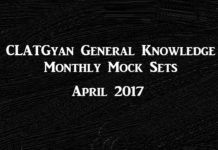B. In the second century of the Christian era, the empire of Rome was the most fair part of the earth, and the most civilized portion of mankind. The frontiers of that extensive monarchy were guarded by ancient renown and disciplined valour. The gentle but powerful influence of laws and manners had gradually cemented the union of the provinces. Their peaceful inhabitants enjoyed and abused the advantages of wealth and luxury. The image of a free constitution was preserved with decent reverence: the Roman senate appeared to possess the sovereign authority, and devolved on the emperors all the executive powers of government. During a happy period of more than fourscore years, the public administration was conducted by and depended on the virtue and abilities of Nerva, Trajan, Hadrian, and the two Antonines.
The principal conquests of the Romans were achieved under the republic; and the emperors, for the most part, were satisfied with preserving those dominions which had been acquired by the policy of the senate, the active emulations of the consuls, and the martial enthusiasm of the people. The seven first centuries were filled with a rapid succession of triumphs; but it was reserved for Augustus to relinquish the ambitious design of subduing the whole earth, and to introduce a spirit of moderation into the public councils. Inclined to peace by his temper and situation, it was easy for him to discover that Rome, in her present exalted situation, had much less to hope than to fear from the chance of arms; and that, in the prosecution of remote wars, the undertaking became every day more difficult, the event more doubtful, and the possession more precarious, and less beneficial. The experience of Augustus added weight to these salutary reflections, and effectually convinced him that, by the prudent vigour of his counsels, it would be easy to secure every concession which the safety or the dignity of Rome might require from the most formidable barbarians. Instead of exposing his person and his legions to the arrows of the Parthians, he obtained, by an honourable treaty, the restitution of the standards and prisoners which had been taken in the defeat of Crassus. On the death of that emperor, his testament was publicly read in the senate. He bequeathed, as a valuable legacy to his successors, the advice of confining the empire within those limits which nature seemed to have placed as its permanent bulwarks and boundaries: on the west, the Atlantic Ocean; the Rhine and Danube on the north; the Euphrates on the east; and towards the south, the sandy deserts of Arabia and Africa.
9. The word ‘fair’ in the passage most nearly means











y r u gvng such tuff psgs? i wnt 2 do cl*t not sum nalsar ka entrnc, duude asad plz keep sumthng easy
how is a score 14??????
Superb though you can do better.
scored 18 in 10 mints… 🙁
i totally loved the passages..required thinking…though i scored less!:P
ur score,mine6,got amazed!
Really, loving to see “You have completed the exercise and your score is 23 out of 25”.
Do post such reading comprehension questions and please gradually increase the difficulty level too.
Thanks again @Asad for changing the Question-Answer pattern. 🙂 Long live CLATgyan.
i cant believe ur score such high in any circumstance
Seriously, you don’t have to. Well, 23 one was on my second attempt. I haven’t commented to show off my score to anyone in anyway. I told Asad to change the question-answer pattern, so he did, then I thanked him for that. Nothing else. And yeah, you shouldn’t bother for others score. So, Chillax and repeat, “Long live CLATGyan.” 😛
[No Offense]
hey friends plz help me,,,,actually am a hindi midium student so its very difficult to understand for me,,,specially this RC section,,,,and also d other section,,,,thanx
all d best to all CLATians
hey i understand ur prob. jst start working hard.start reading eng. newspapr nd some novels ,find difficult words in dictionary etc
quite standardized!!!!!! i like the dificulty level……
Good passages, enjoyed reading them though the difficulty level was a bit too high.
hi sarthak ur score?
as my score is 6,was amazed at it.
Yeah, difficulty level was too high. But such RC disheartens and indirectly motivates us to work harder than ever.
oh! everybody is like me !
Hi, are the CLAT questions actually this hard ? As in are the levels actually this high ?
Please post some more comprehensions ! This is actually very helpful ! 🙂
hey friends may u plz guide me for rc i find really tough
uuhh…. this was not so easy….
shattered my morale …….:(
Can you please highlight the words whose meaning are being asked for? I lost time there. Other than that the passages were amazing. Thanks. 🙂
Hey I scored 15 how do I improve my score? 🙂
Hey,
I scored 17/25 and took 13 minutes for completing the exercise. Is this an above average performance?
if not hoe do I improve?